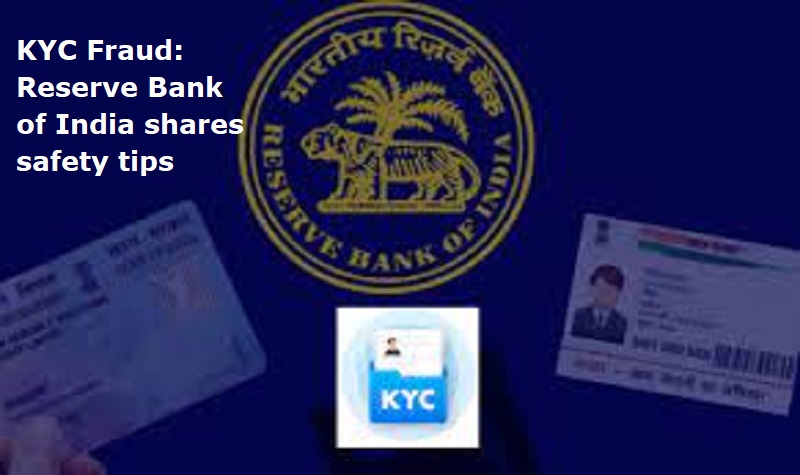
Mumbai: The Reserve Bank of India (RBI) has once again urged people to maintain caution to avoid becoming victims of frauds disguised as KYC (Know Your Customer) updates. Earlier in September 13, 2021, the apex issued an adivisory.
‘In the wake of continuing incidents/reports of customers falling prey to frauds being perpetrated in the name of KYC updation, RBI once again urges the members of public to exercise caution and due care to prevent loss and safeguard themselves from such malicious practices,’ said RBI in a statement.
RBI stated that the modus operandi KYC fraud usually involves customers receiving unsolicited communications, including phone calls/SMS/emails, through which they are manipulated into revealing personal information, account/login details, or installing unauthorised or unverified apps through links provided in the messages. Such communications often employ tactics of creating a false urgency and threatening of account freezing/blocking/closure, if the customer fails to comply.
When customers share essential personal or login details, fraudsters gain unauthorised access to their accounts and engage in fraudulent activities.
RBI also urged all to adopt the following safety measures:
Also Read: Market capitalisation of 4 of to-10 firms climb Rs 2.18 lakh crore
Do’s:
In the event of receiving any request for KYC updation, directly contact the bank/ financial institution for confirmation/ assistance.
Obtain the contact number/ customer care phone number of the bank/ financial institution only through its official website/ sources.
Inform the bank/ financial institution immediately in case of any cyber fraud incident.
Enquire with the bank branch to ascertain available modes/ options for updating KYC details.
Don’ts:
Do not share account login credentials, card information, PINs, passwords, OTPs with anyone.
Do not share KYC documents or copies of KYC documents with unknown or unidentified individuals or organisations.
Do not share any sensitive data/ information through unverified/unauthorised websites or applications.
Do not click on suspicious or unverified links received in mobile or email. In case you receive any such requests, customers must get in touch with the bank/branch.
In the case of financial cyber fraud, RBI has urged that the public should immediately lodge a complaint on the National Cyber Crime Reporting Portal (www.cybercrime.gov.in) or through the cybercrime helpline (1930).

Post Your Comments